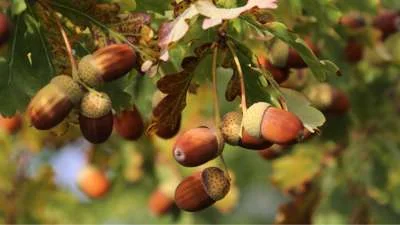Dangers of Acorns for Horses
Acorns contain tannins that are toxic when consumed in excess. A small number of acorns is usually not harmful, but large amounts can lead to poisoning. This is especially true for green acorns and oak leaves, which contain higher levels of tannins. Horses with regular access to oak trees may become “addicted” to acorns and develop serious health problems such as colic and kidney failure. It can be difficult to determine exactly how many acorns are too many, but a few scattered acorns are generally harmless. The risk increases when horses eat several handfuls of acorns daily.
How to Recognize Acorn Poisoning?
Symptoms of acorn poisoning include:
How to prevent your horse from eating acorns?
To prevent your horse from coming into contact with acorns, take the following measures:
What to do if you suspect acorn poisoning?
Do you notice symptoms of acorn poisoning? Contact your vet immediately. Early intervention can reduce the severity of poisoning.
Acorns are not always a problem, and it’s even said that a small amount of tannins might help reduce worm populations. However, there is no scientific evidence to support this. Stay alert and make sure your horse does not consume large quantities. A combination of proactive removal, sufficient hay, and good monitoring can help keep your horse healthy this autumn.

